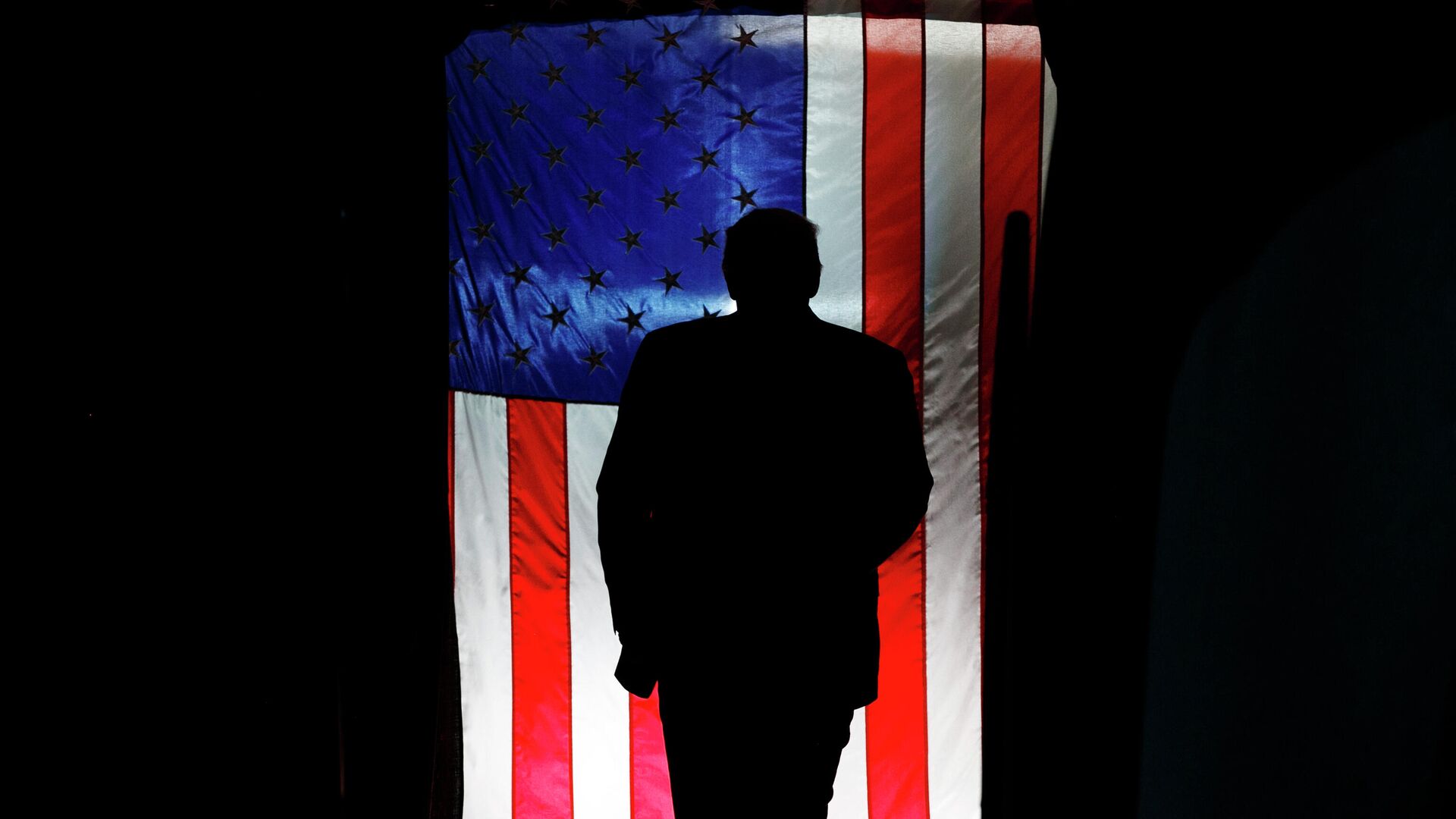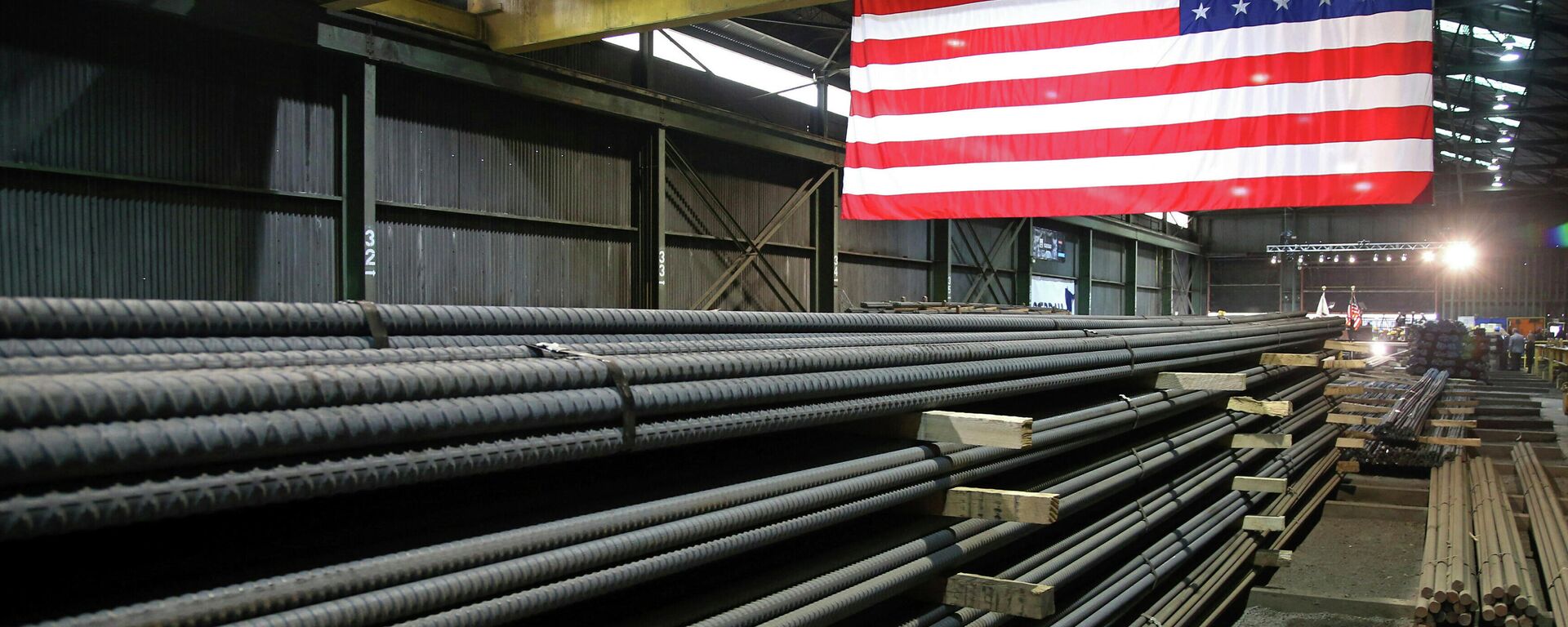https://sputnikglobe.com/20250531/temporary-reversals-dont-matter-why-trumps-tariff-agenda-may-prevail-despite-court-challenges-1122160314.html
'Temporary Reversals Don't Matter': Why Trump's Tariff Agenda May Prevail Despite Court Challenges
'Temporary Reversals Don't Matter': Why Trump's Tariff Agenda May Prevail Despite Court Challenges
Sputnik International
Congress will likely give US President Donald Trump necessary authority to impose his tariffs even if a court blocks them, Stephen Presser, the Raoul Berger professor of legal history emeritus at Northwestern University's Pritzker School of Law, told Sputnik.
2025-05-31T09:36+0000
2025-05-31T09:36+0000
2025-05-31T09:36+0000
economy
us
donald trump
virginia court
canada
china
mexico
congress
opinion
https://cdn1.img.sputnikglobe.com/img/07e6/02/0d/1092979984_0:160:3073:1888_1920x0_80_0_0_4cdf2dbadb32ca14173df7693416baa5.jpg
"Even if the Courts eventually rule against the President, I would not be surprised if Congress eventually grants the President broader authority to impose tariffs, so his temporary court reversals are not really significant," Presser said. Still, the expert suggested that the appellate court's stay would not have been granted if the court did not believe there was a good chance that Trump would prevail on appeal, either at the intermediate appellate court or the Supreme Court. On Wednesday, the US Court of International Trade ruled that Trump has exceeded his authority in imposing trade tariffs, adding that they "will be vacated and their operation permanently enjoined." The ruling halted the 25% tariffs on some goods imported from Mexico and Canada and the 10% universal tariffs on most goods entering the United States but kept in place the 25% tariffs on automobiles, auto parts, steel, and aluminum. On Thursday, a federal appeals court reinstated the administration's tariffs, overturning the lower court's decision. On April 2, the US president signed an executive order that implemented reciprocal tariffs on imports from various countries. The base tariff rate was established at 10%, with higher rates applied to 57 countries based on the US trade deficit with each specific nation. On April 9, Trump declared that a baseline tariff of 10% would be imposed for 90 days on over 75 countries that had not retaliated and had requested negotiations, except for China.
https://sputnikglobe.com/20250531/trump-doubles-tariff-on-steel-imports-from-25-to-50-1122159624.html
canada
china
mexico
Sputnik International
feedback@sputniknews.com
+74956456601
MIA „Rossiya Segodnya“
2025
Sputnik International
feedback@sputniknews.com
+74956456601
MIA „Rossiya Segodnya“
News
en_EN
Sputnik International
feedback@sputniknews.com
+74956456601
MIA „Rossiya Segodnya“
Sputnik International
feedback@sputniknews.com
+74956456601
MIA „Rossiya Segodnya“
us, us congress, donald trump, trump tariffs
us, us congress, donald trump, trump tariffs
'Temporary Reversals Don't Matter': Why Trump's Tariff Agenda May Prevail Despite Court Challenges
WASHINGTON (Sputnik) - Congress will likely give US President Donald Trump necessary authority to impose his tariffs even if a court blocks them, Stephen Presser, the Raoul Berger professor of legal history emeritus at Northwestern University's Pritzker School of Law, told Sputnik.
"Even if the Courts eventually rule against the President, I would not be surprised if Congress eventually grants the President broader authority to impose tariffs, so his temporary court reversals are not really significant," Presser said.
Still, the expert suggested that the appellate court's stay would not have been granted if the court did not believe there was a good chance that Trump would prevail on appeal, either at the intermediate appellate court or the Supreme Court.
On Wednesday, the US Court of International Trade ruled that Trump has exceeded his authority in imposing
trade tariffs, adding that they "will be vacated and their operation permanently enjoined." The ruling halted the 25% tariffs on some goods imported from Mexico and Canada and the 10% universal tariffs on most goods entering the United States but kept in place the 25% tariffs on automobiles, auto parts, steel, and aluminum. On Thursday, a federal appeals court reinstated the administration's tariffs, overturning the lower court's decision.
On April 2, the US president signed an executive order that implemented reciprocal tariffs on imports from various countries. The base tariff rate was established at 10%, with higher rates applied to 57 countries based on the US trade deficit with each specific nation. On April 9, Trump declared that a baseline tariff of 10% would be imposed for 90 days on over 75 countries that had not retaliated and had requested negotiations, except for China.



